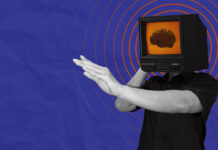A new study published in the American Journal of Psychotherapy found Interpersonal Therapy (IPT) to be an effective treatment for posttraumatic stress disorder (PTSD). The current work, led by John Keefe of Long Island University, also finds that Psychodynamic Therapy (PDT) shows promise in the treatment of PTSD, but currently lacks robust evidence of its effectiveness. The findings are crucial for shared decision-making in mental health services, as current trauma-focused, evidence-based psychotherapies (prolonged exposure, cognitive processing therapy) are partially effective and are often not tolerated by patients due to their exposure elements. The authors write:
“A clinically important finding was that IPT and PDT considered together and IPT alone were associated with lower risk for treatment dropout compared with other active (mostly exposure-focused therapist). This finding was important because trauma-focused CBTs, particularly PE, has been associated with higher dropout rates across meta-analysis and large clinical trials. Our findings suggest that patients who have difficulty tolerating other PTSD or who do not find these treatments to be appropriate or helpful in treating their PTSD, may find interpersonal and affect-focused treatments such as IPT and PDT acceptable, potentially expanding their treatment to a unique subset of patients.”
















“Study Finds Interpersonal Therapies Effective for PTSD”: it is a very crude and socially conditioned idea that therapies are the gold standard, because therapy and other forms of reified sociality are the products of the break down of our natural
social structures, sociality and social health. The tiny kernel of truth in this idea is rooted in a far more fundamental human truth: that community and real conversation is the natural social source of healing for a traumatised human being, i.e. being in t he bosom of people who love, understand and care for you, and this is the supportive social tissue within which human beings most naturally and easily heal. The therapeutic relationship is a profoundly impoverished form of community isn’t it, especially since the therapist must seek personal and financial profit from this relationship, as drug companies extract from the background, being excellent back seat drivers of the whole of psychiatry and to a lesser extent psychology. You understand this not by becoming an expert or quack, but by seeing things from an unremittingly human perspective, and you are a human after all. You are the only one who can touch that perspective, which is you. But you never touch that perspective which is the actual you. And I haven’t got the patience to deal with this level of stupidity anymore. It’s inexcusable. Wake up. We have to be more intelligent then society. If you’ve got a stupid unintelligent malfunctioning computer brain this is because of society. If you drop all your socially conditioned assumptions like the idea that the therapeutic relationship is healthy perhaps, just maybe, you might start to see things clearly. Otherwise, what is wrong with you computer brained machines? Wake up! It’s all bullshit. Everything is bullshit, except what you actually are, but you’ve never been. You’ve been only through this bullshit, and it is bullshit. Everything is bullshit except that which can free itself from this bullshit. And that thing that can free itself from this bullshit is your life crushed, circumscribed and constrained to express itself through all this endless and hopeless bullshit of social discourse and academic approaches to real, fundamental, actual human problems, human realities, which is OUR LIVES, our actualities, that sketchy and ineffable hum behind all this noise and bullshit of a bullshit society that has destroyed humanity and the Earth and conditioned us to be so stupid that we don’t actually notice the importance of that fact.
Society of the spectacle has become society of black eyed vampires and their victims, and both vampire and victims are hiding not to be perceived directly. They are hiding behind the bullshit which pretends to be ‘me’. It’s social conditioning, it’s bullshit, the social program in your head running and construing your life in it’s own image. It’s the inertia of the past, ever trying to consume the living and in consuming the living, making it dead. It’s the corpse in your head. It’s the corpse in the bed. It’s the corpse you think you are, and when you think you are it, it’s the corpse in your flesh.
Report comment
Blimey, are you referencing Raoul Vaneigem?
I like this quote, “People who talk about revolution and class struggle without referring explicitly to everyday life, without understanding what is subversive about love and what is positive in the refusal of constraints, such people have a corpse in their mouth.”
Therapy is like prostitution , a paid pale imitation of love.
Report comment
Funnily enough I used to know that quote and used to memorize it in my twenties but I had forgotten that Raoul Vaneigem existed! At the time I think I preferred him to Guy Debord, but I reckon I’d plump for the latter this time because as Trump’s America shows more then any other place and time, we do live in one big unreal circus, one big society of the spectacle. “Therapy is like prostitution , a paid pale imitation of love” – exactly. Probably everything in society could be analysed through this idea of it being “paid pale imitation of love”! Probably it could have been the starting point of another new critical theory if the world had time to think it’s way out of trouble!
Report comment
I think this a bold and profound expression of the truth. How can a psyche, damaged by conventional–and often surreal–societal realities be healed in one hour a week of expensive therapy, only to return to the former the rest of the week? Who wants to belong to the now times? But where is there somewhere else? Also, sometimes there are incompetent therapists and medication is hit or miss. We are in the dark ages of imaginative , effective treatment for mental distress. It is all-encompassing and gradually eating us from within.
Report comment
has it replicated?, how robust are the protocols? is it studying something concrete rather than an amorphous construct? where its impossible to control for all the variables, what about bias? what about the long and winding road of critical research showing no psychotherapy has any robust efficacy supporting it and the foundational studies like smith and glass are also rubbish? not to mention the constant headlines like this one that don’t really amount to much at all.
Report comment
Yes, and also what are we comparing these therapeutic interventions too? Drugs? How’s about comparing it to having a loving and supporting community that makes you feel secure and able to be who you are without apology? I doubt the therapeutic intervention would compare very favourably to the latter, and such a comparison would produce a radically different picture to the one this stupid study is painting. I guess Topher you must have seen the dark side of this system in order to be able to see through this article like you have. Alas, it would take eons for the academic insights of psychiatry to catch up with those consciously or subconsciously held by the ‘mentally ill’ person that psychiatry has helped to bury and destroy.
Report comment
Raoul Vaneigem and Guy Debord! The self-regulating society they spoke about perfectly describes my culture which creates much resilience and much lower boundaries than our usual static boundaries set by psychiatrists – basic collective society.
I hadn’t heard of these two authors before, but after a quick search, I’m hooked. Thank you for mentioning them! I’m diving deeper into their work because I love discovering this kind of knowledge.
Report comment